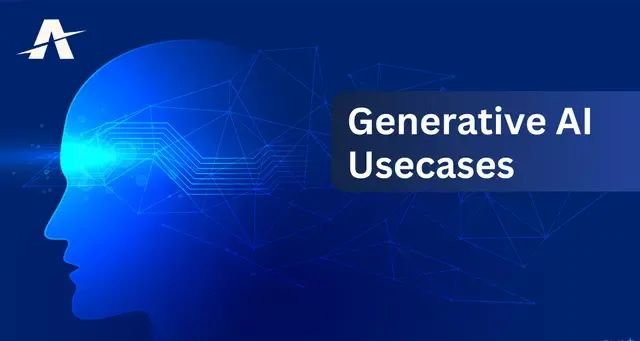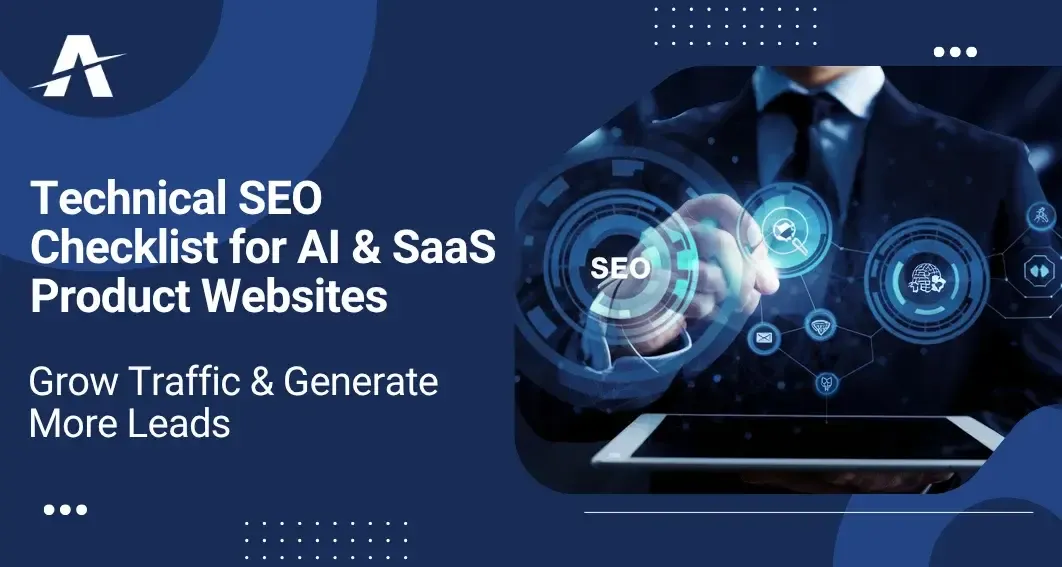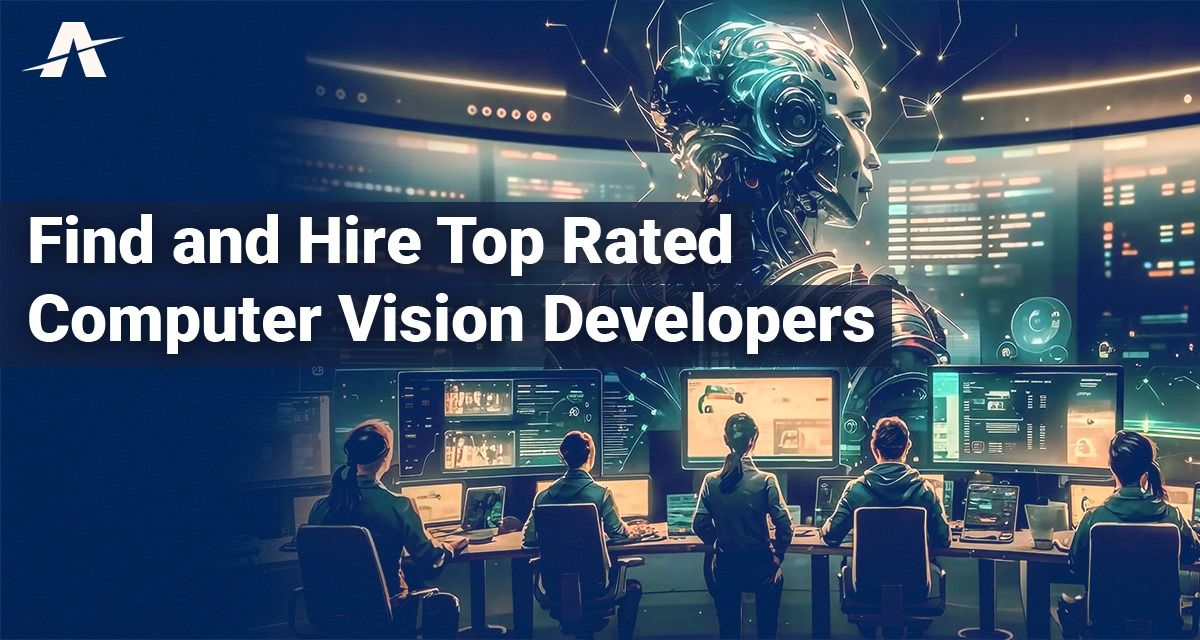
The healthcare industry is undergoing a profound digital transformation, and at the forefront of this change are AI chatbots in healthcare. These intelligent virtual assistants are not only transforming how healthcare providers interact with patients but are also optimizing resource management and elevating service delivery standards.
By automating tasks and offering round-the-clock support, these AI chatbots in healthcare are bridging critical gaps in patient care and operational efficiency. In this comprehensive guide, we’ll delve deeper into how AI chatbots are reshaping the healthcare landscape, their numerous benefits, diverse types, wide-ranging applications, and the challenges they may face along the way.
How Do AI Chatbots Work?
AI chatbots rely on technologies like Natural Language Processing (NLP) and machine learning to function effectively. Here’s how they work:
Input Analysis: Understand patient queries through NLP.
Data Retrieval: Access relevant databases for accurate responses.
Response Generation: Provide tailored replies based on context and data.
Continuous Learning: Improve accuracy and functionality with user interactions.
AI chatbots in healthcare or for that matter any chatbot it utilizes advanced algorithms to interpret user input, ensuring precise understanding of queries. This process involves NLP, which deciphers language nuances to generate relevant responses. By accessing healthcare databases, chatbots retrieve accurate information tailored to individual needs.
Continuous learning through machine learning enhances their functionality over time. With each interaction, chatbots improve their response accuracy, adapting to user behavior and becoming more efficient at handling diverse queries.
Types of AI Chatbots in Healthcare
AI chatbots rely on technologies like Natural Language Processing (NLP) and machine learning to function effectively. Here’s how they work:
Symptom Checkers:Evaluate patient symptoms and suggest potential diagnoses or steps.
Appointment Scheduling Assistants: Manage bookings, cancellations, and reminders.
Medication Reminders: Ensure adherence to prescribed treatments.
Mental Health Support Bots: Offer CBT and emotional support (e.g., Woebot).
Administrative Bots: Streamline insurance claims and onboarding processes.
Different types of AI chatbots in healthcare cater to specific aspects of health. For instance, symptom checkers guide patients by narrowing down possible diagnoses and advising next steps. Appointment bots simplify scheduling processes, ensuring timely visits without manual intervention. Mental health bots like Woebot provide empathetic and evidence-based support, making mental healthcare more accessible.
Medication reminder bots ensure that patients follow their prescribed treatments, significantly improving compliance rates. Administrative bots handle mundane tasks like insurance processing and documentation, freeing up valuable time for healthcare staff to focus on core responsibilities.
Key Benefits of AI Chatbots in Healthcare
Enhanced Patient Access: AI chatbots provide 24/7 accessibility, ensuring patients can obtain medical assistance or information anytime, anywhere.
Operational Efficiency: Automating repetitive tasks allows healthcare providers to focus on complex medical cases.
Cost Savings: Reducing the need for human intervention in routine tasks helps cut costs significantly.
AI chatbots in healthcare enhance patient care by providing instant responses to queries, ensuring faster access to medical information. Their ability to operate continuously without breaks ensures that patients receive support even during off-hours, making healthcare more accessible and convenient. By automating routine administrative tasks, these bots help medical professionals dedicate more time to critical care and decision-making.
Another major advantage lies in the operational cost savings achieved through automation. Tasks like appointment scheduling, symptom checking, and medication reminders no longer require human intervention, significantly reducing labor costs. This efficiency also minimizes errors and improves overall service delivery in healthcare institutions.
Applications of Chatbots in Healthcare
Telemedicine: Support remote consultations with real-time assistance.
Chronic Disease Monitoring: Track symptoms and provide timely interventions for conditions like diabetes.
Patient Education: Offer educational resources about diseases, treatments, and preventive care.
Insurance Assistance: Simplify claim processes and queries for patients.
Emergency Guidance: Provide initial assistance during emergencies and direct patients to appropriate services.
AI chatbots in healthcare play a significant role in telemedicine, bridging gaps in remote healthcare delivery. They assist patients by providing real-time information, scheduling virtual consultations, and guiding them through the process. For chronic disease management, these bots offer constant monitoring and timely alerts, helping patients stay on top of their health.
Educational applications of AI chatbots in healthcare include disseminating accurate and relevant medical information. By answering common queries and providing preventive care tips, they empower patients to make informed decisions. Additionally, they streamline insurance processes, reducing administrative friction and enhancing user experience.
Real-Life Example of AI Chatbots in Healthcare
Example: Chatbots like Buoy Health assist patients by evaluating symptoms through interactive Q&A sessions, providing personalized guidance based on AI algorithms. Another example is HealthTap, which allows users to book appointments and manage their schedules seamlessly. These applications enhance patient satisfaction and reduce administrative burdens.
Buoy Health is a prime example of how chatbots transform patient interactions. By leveraging AI algorithms, it offers personalized advice based on user inputs, enabling patients to understand their symptoms better. Similarly, HealthTap streamlines appointment scheduling, reducing wait times and administrative hurdles for both patients and healthcare providers.
These tools demonstrate the tangible impact of AI chatbots in healthcare or AI in healthcare by improving patient engagement and operational workflows. They also pave the way for integrating advanced AI solutions to meet evolving patient needs.
Advantages of Chatbots in Healthcare
Scalability: Handle large volumes of queries simultaneously without compromising quality.
Consistency: Provide standardized responses, ensuring accurate and reliable interactions.
Data Analysis: Generate insights from collected data to improve healthcare delivery.
AI chatbots excel in scalability, managing thousands of patient queries simultaneously. This capability ensures that healthcare providers can cater to a larger audience without sacrificing service quality. Moreover, chatbots maintain consistency in responses, eliminating variability often seen in human interactions.
The data collected through chatbot interactions also provides valuable insights into patient behavior and needs. These analytics can inform healthcare strategies, enhance service offerings, and identify areas requiring improvement, making chatbots invaluable tools for continuous innovation.
Disadvantages of Chatbots in Healthcare
Limited Understanding: Struggle with interpreting complex or ambiguous patient needs.
Privacy Risks: Require robust security measures to safeguard sensitive patient data.
Lack of Emotional Connection: Miss the empathy and rapport a human provider offers.
Despite their advantages, AI chatbots have limitations. Their inability to comprehend complex medical queries can result in miscommunication, especially in nuanced cases. Privacy concerns also arise, as these bots handle sensitive patient information that must be protected from breaches.
Additionally, the absence of emotional intelligence in chatbots limits their ability to connect with patients on a personal level. While they efficiently address functional needs, they cannot replicate the empathy and understanding that human healthcare providers offer.
The Future of AI Chatbots in Healthcare
Integration with Wearables: Enhance real-time health monitoring.
Improved Diagnoses: Leverage predictive analytics for accurate symptom analysis.
Multilingual Support: Cater to diverse patient populations.
Preventive Healthcare: Identify risks early using advanced analytics.
The future of AI chatbots lies in their integration with wearable devices, providing real-time health monitoring and personalized insights. These advancements promise better preventive care, enabling early detection and intervention for potential health risks. Predictive analytics will further refine diagnostic accuracy, improving patient outcomes.
Multilingual capabilities will make AI chatbots in healthcareaccessible to a broader audience, addressing language barriers. As chatbots continue to evolve, they will become essential tools for delivering comprehensive, patient-centered care on a global scale.
Will AI Replace Doctors?
While AI chatbots streamline healthcare processes, they’re not a substitute for doctors. These bots handle routine and administrative tasks, freeing up doctors to focus on critical care. The human touch, empathy, and expertise of doctors remain irreplaceable.
AI chatbots in healthcare complement the work of medical professionals by automating time-consuming tasks and enhancing efficiency. However, the complexity of human health requires the judgment and experience of medical practitioners. Chatbots act as supportive tools, not replacements, ensuring better resource allocation and improved patient care outcomes.
Final Say
AI chatbots in healthcare are transforming the way providers and patients interact, making services more accessible, efficient, and patient-centric. While these tools offer numerous advantages, such as cost savings and operational scalability, they also come with challenges like privacy concerns and limitations in understanding complex queries. However, with continuous advancements in AI and machine learning, the potential of chatbots to reshape healthcare is immense. Their role is not to replace but to complement healthcare professionals, paving the way for a more efficient and inclusive future in medical care.
Frequently Asked Questions (FAQs)
1. What are AI chatbots in healthcare?
Intelligent virtual assistants that automate tasks like symptom checking, appointment scheduling, and patient education.
2. What are the benefits of chatbots in healthcare?
AI chatbots in healthcare will provide an improved accessibility, reduced costs, and enhanced operational efficiency.
3. What is an example of using AI chatbots in healthcare?
Symptom checkers like Buoy Health and appointment managers like HealthTap.
4. What are the disadvantages of using chatbots in healthcare?
Privacy risks, lack of emotional intelligence, and limited understanding of complex cases in today's AI chatbots in healthcare.
5. What is the future of chatbots in healthcare?
Integration with wearable devices, predictive analytics, and multilingual capabilities.
About AskGalore
AskGalore is a leading Artificial Intelligence Company and Blockchain consulting service provider specializing in delivering comprehensive AI/ML web3 and custom software development services for startups, SMEs and enterprise clients across the globe. With over 7+ years of experience in the industry, we focus on product engineering and custom software development services especially in the fields of computer vision, generative AI, Natural Language Processing (NLP), Large Language Models (LLMs), Data Engineering and Blockchain services.










